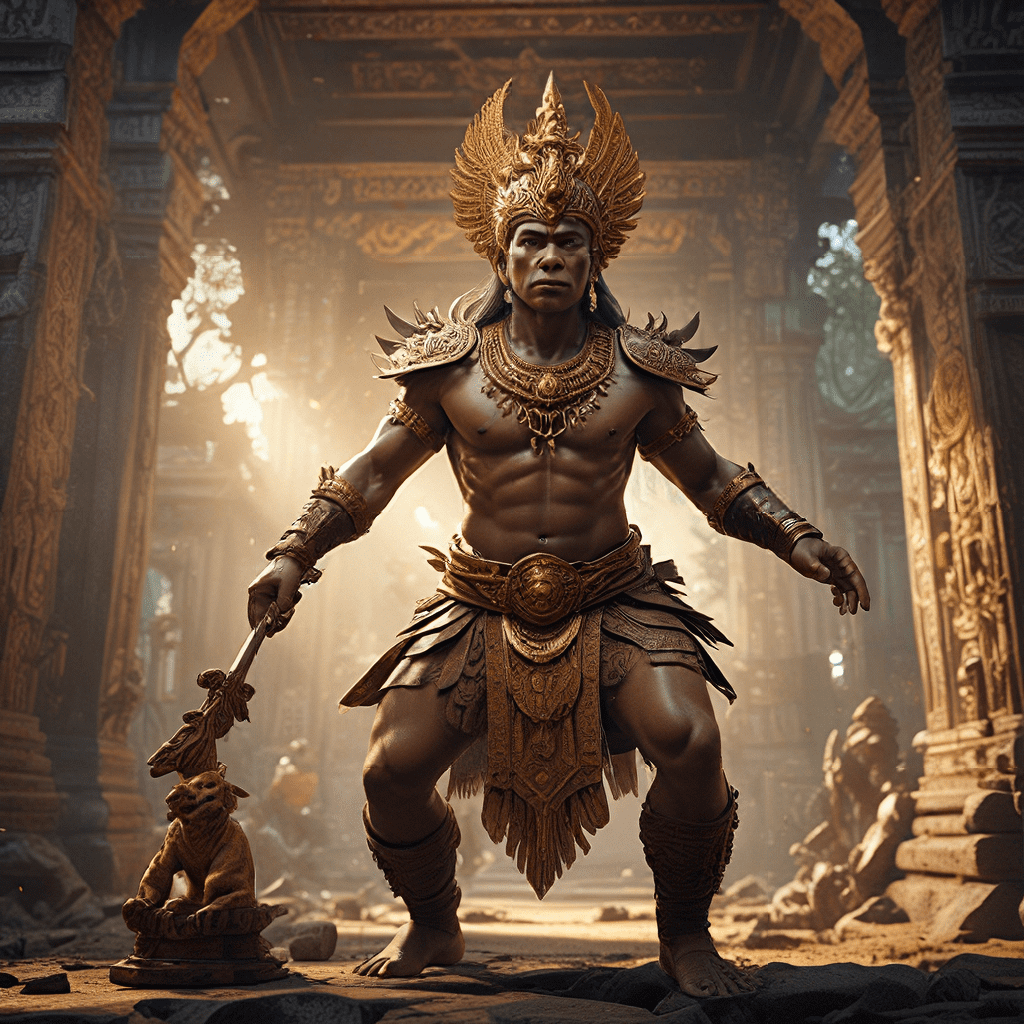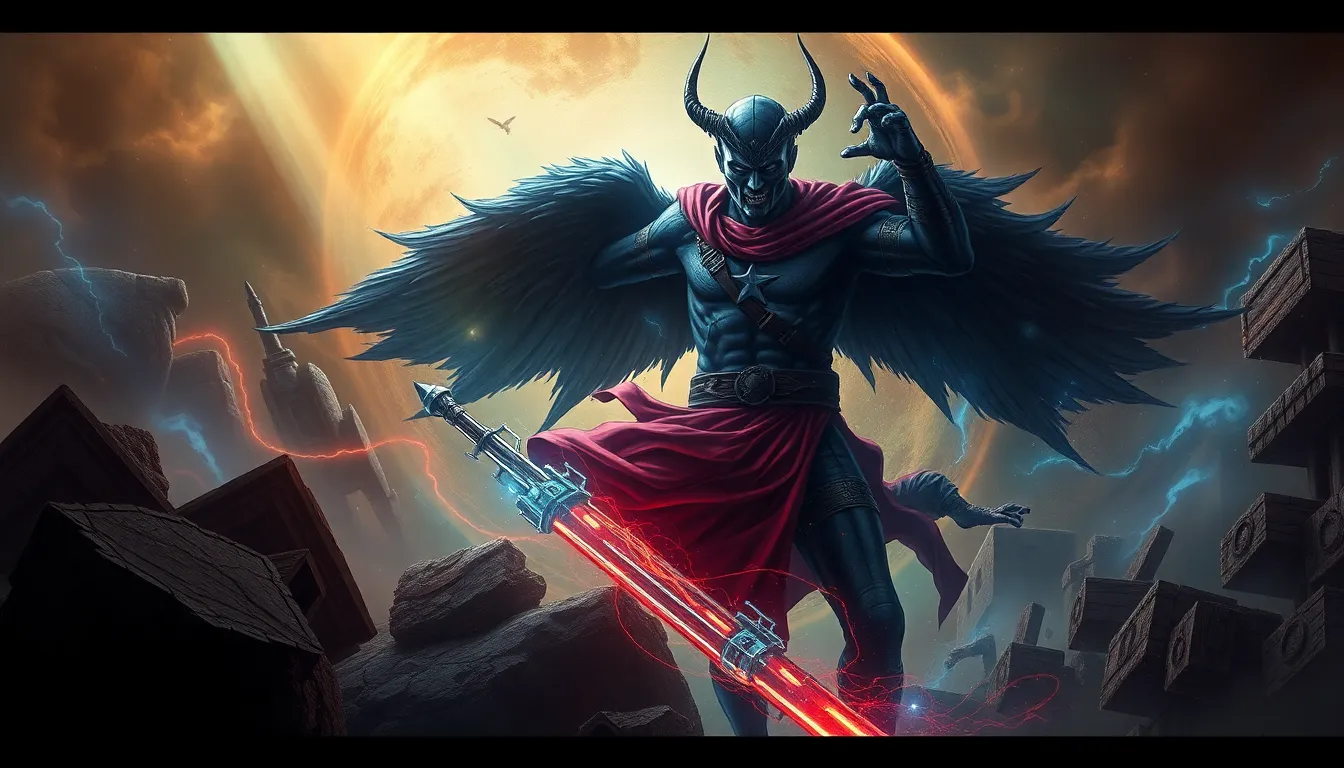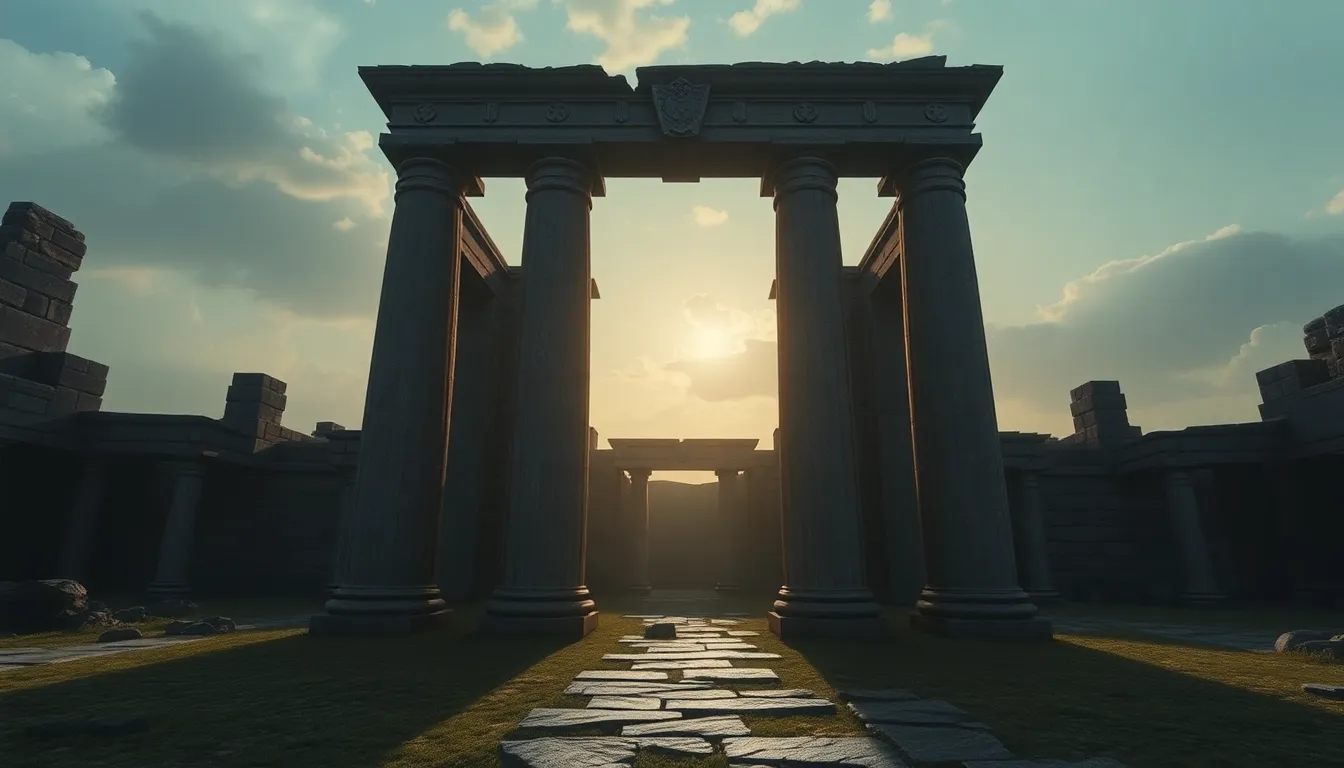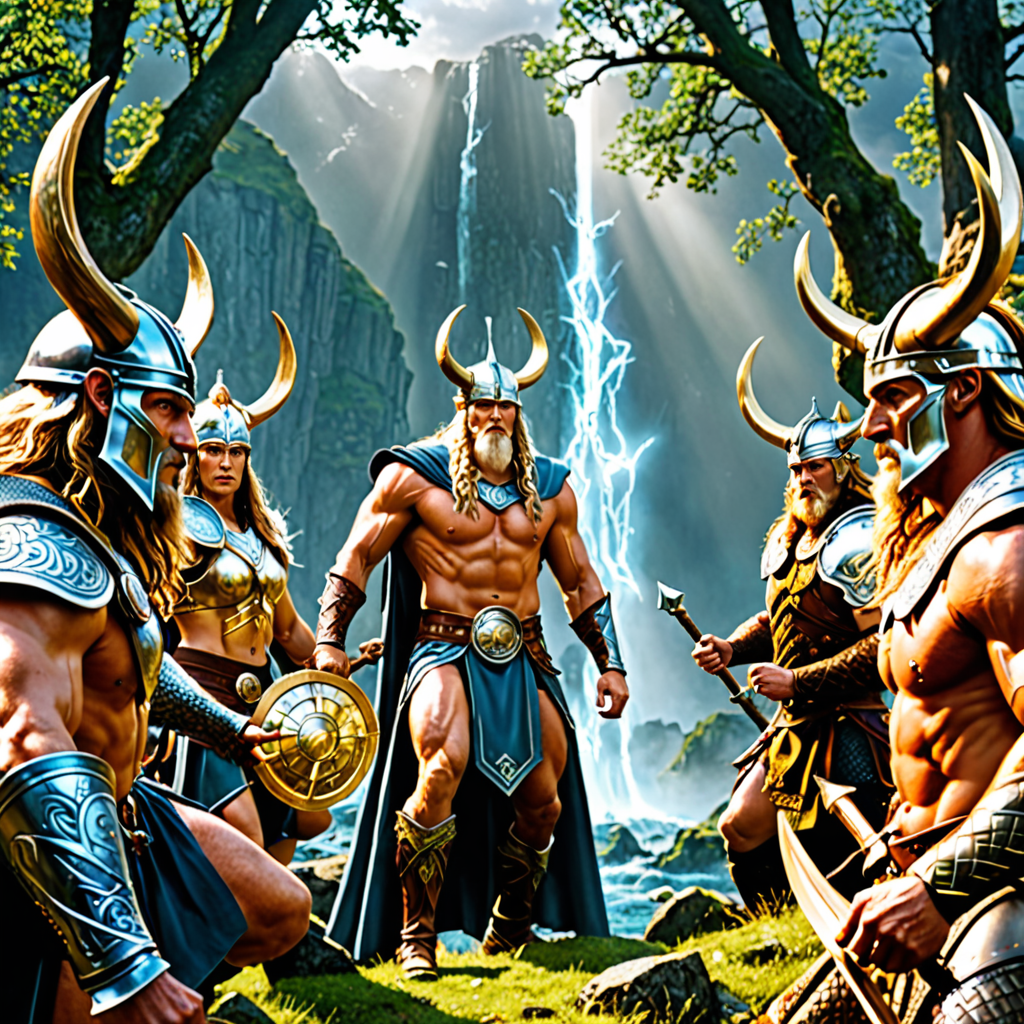Indonesian Mythology: The Power of Fate and Destiny
Indonesia, a vast archipelago with thousands of islands, is also a treasure trove of diverse myths and legends. These stories reflect the rich cultural heritage and beliefs of its people. One central theme that threads through these tales is the concept of fate, known as "takdir" in Indonesian. This belief, deeply ingrained in the Indonesian psyche, shapes how people understand their lives, their actions, and their place in the world.
Indonesian Mythology: A Tapestry of Beliefs
Indonesian mythology is a dynamic tapestry woven from various influences. Ancient animistic beliefs, where spirits inhabit natural elements like mountains, rivers, and trees, form the foundation. These beliefs are intertwined with the arrival of Hinduism and Buddhism, which brought their own pantheon of deities and concepts of karma and reincarnation. Islam, introduced later, further enriched the mythological landscape. These diverse influences create a complex and fascinating system of beliefs that profoundly impact how Indonesians perceive fate.
The Concept of “Takdir” in Indonesian Folklore
"Takdir" is a powerful concept in Indonesian folklore, referring to the predetermined course of events in a person's life. It's not simply a passive acceptance of destiny; it's a belief that everything happens for a reason, often ordained by a higher power. This belief is deeply woven into the everyday lives of Indonesians, impacting their decisions, actions, and how they view challenges and successes.
Take, for example, the "jodoh", which translates to "fated partner." This belief suggests that everyone has a destined soulmate and that relationships are guided by a higher power. The concept of "jodoh" impacts everything from marriage choices to the understanding of relationships throughout life.
Mythical Figures and Their Roles in Shaping Fate
Indonesian mythology is populated with a vibrant cast of mythical figures, each with their own role in shaping destiny. Batara Guru, the supreme god in the Hindu-influenced pantheon, is often seen as a powerful figure who dictates fate. Dewi Sri, the goddess of rice and fertility, is believed to influence prosperity and abundance. Nyi Roro Kidul, the mystical queen of the Southern Ocean, is often associated with fate, especially for those who venture into the sea.
These mythical figures, through their actions and interactions with humans, often influence the course of events. Their presence in stories serves as a reminder of the powerful forces that shape destiny.
The Influence of Hindu and Buddhist Beliefs
Hinduism and Buddhism have left a profound mark on Indonesian mythology. From the concept of karma, where actions have consequences, to the cycle of birth, death, and rebirth (samsara), these beliefs are woven into Indonesian folklore. The idea that one's present life is shaped by past actions, and that future lives can be influenced by current actions, reinforces the belief in a predetermined destiny.
The influence of these beliefs is evident in many stories. One popular myth tells the story of Ratu Shima, a princess who was cursed to become a beautiful white snake due to her past actions. This story highlights the concept of karma and how past actions can have profound consequences.
Rituals and Practices to Influence Fate
While "takdir" implies a predetermined destiny, Indonesian mythology also acknowledges the potential for humans to influence their fate. This belief is reflected in the many rituals and practices aimed at seeking guidance, protection, and blessings from the supernatural realm.
One common practice is "selametan", a traditional feast held to celebrate special occasions, like births, weddings, or harvest festivals. During "selametan," offerings are made to the spirits and ancestors, seeking their blessings and favor. This ritual is believed to help ensure a smooth and prosperous future.
Indonesian mythology is also rich in "doa" (prayers) and "mantra" (incantations) used to seek protection and influence fate. These spiritual practices, often steeped in Islamic tradition, are believed to have the power to ward off misfortune and attract good fortune.
Another significant practice is "weton", a system based on the day and hour of birth, which is believed to reveal a person's character, strengths, weaknesses, and future prospects. This system is used to determine auspicious times for important events like weddings and business ventures.
The Role of Ancestors in Determining Destiny
In Indonesian mythology, ancestors play a vital role in determining destiny. They are believed to watch over their descendants from the spirit world, offering guidance, protection, and even influencing their fate. This belief is reflected in the practice of "nyekar", where people visit ancestral graves to pay respects and offer prayers.
The belief in ancestral influence is also evident in the many myths and legends that feature ancestors as powerful figures who shape the lives of their descendants. For example, in the legend of Sangkuriang, a man accidentally kills his own mother (due to a curse) and is cursed by the gods to build a dam to stop the flow of a river, forever searching for his mother. This story demonstrates the power of ancestral influence and the consequences of disrespecting them.
The Power of Karma in Shaping Fate
The concept of karma, deeply ingrained in Indonesian mythology, emphasizes the idea that actions have consequences, both in this life and in future lives. Good deeds bring good karma, leading to happiness and prosperity, while bad deeds lead to bad karma, resulting in suffering and misfortunes.
In some myths, karma is depicted as a force that dictates destiny, guiding individuals through a cycle of reincarnation until they achieve spiritual enlightenment. This belief is evident in the story of "Jaka Tarub", a man who steals the clothes of seven nymphs bathing in a magical lake. His actions lead to a curse, forcing him to marry one of the nymphs and experience the consequences of his actions.
Free Will Versus Determinism in Indonesian Mythology
Indonesian mythology presents a complex perspective on free will versus determinism. While "takdir" suggests a predetermined destiny, people also have the power to make choices and influence their fate through their actions and beliefs. This tension between free will and determinism is reflected in many aspects of Indonesian mythology.
For example, the myth of "Si Pitung", a legendary Robin Hood figure, highlights the concept of free will and the ability to challenge oppressive forces. Si Pitung's actions, though driven by a desire for justice, also had consequences, demonstrating that even those who act with good intentions can face difficult choices and experience the consequences of their actions.
The Shifting Landscape of Fate in Modern Indonesia
In contemporary Indonesia, the concept of fate continues to influence people's lives but is also evolving as society modernizes. While traditional beliefs about "takdir" remain strong, new ideas about self-determination and personal responsibility are emerging. This shift is reflected in the rise of individualism, education, and technological advancements, which empower people to take control of their lives.
Despite these changes, the belief in fate remains a significant aspect of Indonesian culture. It continues to shape how people understand their lives, their actions, and their place in the world.
FAQ
Q: What is "takdir" and how does it impact Indonesian lives?
A: "Takdir" is the Indonesian word for "fate" or "destiny." It refers to the belief that certain events in a person's life are predetermined, often by a higher power. This belief impacts many aspects of life in Indonesia, influencing decisions, actions, and how people view challenges and successes.
Q: Are there any mythical figures specifically associated with fate in Indonesian mythology?
**A: ** Yes, many mythical figures in Indonesian mythology are associated with fate. Batara Guru, the supreme god in the Hindu-influenced pantheon, is often seen as a powerful figure who dictates fate. Nyi Roro Kidul, the mystical queen of the Southern Ocean, is often associated with fate, especially for those who venture into the sea.
Q: How do rituals and practices influence fate in Indonesian mythology?
**A: **Indonesian mythology recognizes the potential for humans to influence their fate through rituals and practices. "Selamatan" feasts, "doa" (prayers), and "mantra" (incantations) are believed to seek guidance, protection, and blessings from the supernatural realm.
Q: What are some examples of how karma shapes fate in Indonesian mythology?
**A: **The concept of karma is deeply ingrained in Indonesian mythology. Some myths depict karma as a force that dictates destiny, guiding individuals through a cycle of reincarnation. The story of "Jaka Tarub," where a man is cursed due to his actions, illustrates the consequences of bad karma.
Q: Does Indonesian mythology present a clear view on free will versus determinism?
**A: **Indonesian mythology presents a complex perspective on free will versus determinism. While "takdir" suggests a predetermined destiny, people also have the power to make choices and influence their fate through their actions and beliefs. The myth of "Si Pitung" highlights this tension, showing that even those who act with good intentions can face difficult choices and experience consequences.



